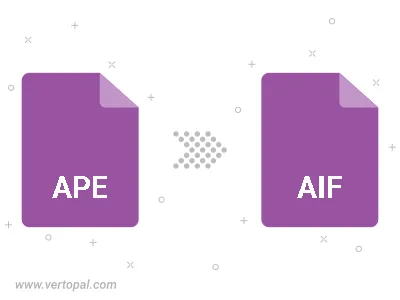Convert APE to AIF
Convert APE audios to AIF format, edit and optimize audios online and free.

The APE file extension, associated with Monkey's Audio, represents a lossless audio compression format designed to preserve original sound quality while reducing file size. Developed by Matthew T. Ashland in 2000, Monkey's Audio employs advanced algorithms to achieve efficient compression without data loss, making it a preferred choice for audiophiles and digital archiving. APE files support metadata tagging and are widely used in music production, storage, and distribution. While offering superior compression ratios compared to other lossless formats, they require specific software or plugins for playback due to limited native support across mainstream media players.
The Audio Interchange File Format (AIF) is a standardized audio file format developed by Apple Inc. in 1988 for storing sound data. It is primarily used in professional audio environments due to its ability to store uncompressed, high-quality audio data. AIF files are widely supported across different platforms and applications, particularly in the context of music production and sound engineering, where high fidelity is paramount. Their uncompressed nature allows for precise editing and processing, making them an essential tool for IT specialists and audio professionals.
Drag & drop any APE file from your device or click the Choose File button to proceed.
Pick any APE to AIF tools if you need to edit your APE file, then click the Convert button.
After the convert is complete, click on the Download button to get your AIF audio.

Trim & cut APE and convert it to AIF.
Convert APE to AIF and set the output channels to Mono (1.0) or Stereo (2.0).
To change APE format to AIF, upload your APE file to proceed to the preview page. Use any available tools if you want to edit and manipulate your APE file. Click on the convert button and wait for the convert to complete. Download the converted AIF file afterward.
Follow steps below if you have installed Vertopal CLI on your macOS system.
cd to APE file location or include path to your input file.Follow steps below if you have installed Vertopal CLI on your Windows system.
cd to APE file location or include path to your input file.Follow steps below if you have installed Vertopal CLI on your Linux system.
cd to APE file location or include path to your input file.